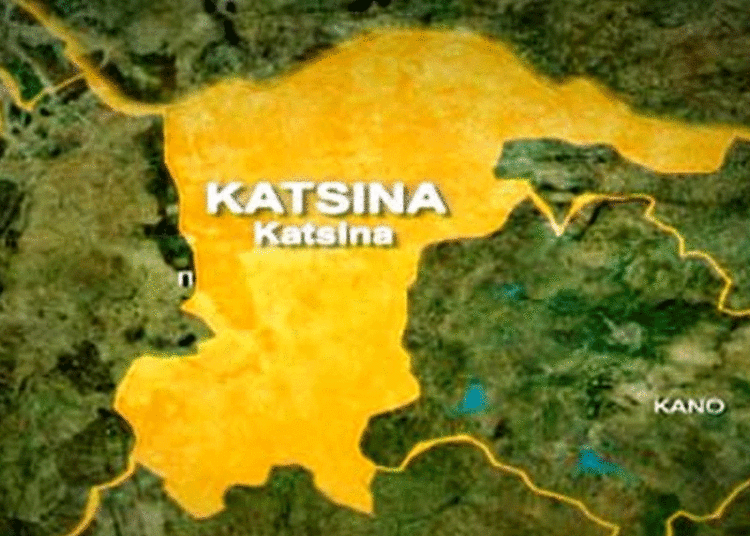The literacy level in the North is very low compared with other parts of the country. What is Katsina State doing to address this challenge?
Yes, this is true and that’s why as a state government, we have initiative to address it. The Katsina State Universal Basic Education Board (Katsina SUBEB) is responsible for managing the affairs of all primary schools in the state—about 30,000 schools altogether, with over 28,000 teachers and more than 2 million children.
One of the key aspects of SUBEB’s job is overseeing school construction through state government funding in collaboration with the Universal Basic Education Commission (UBEC). The agency is also responsible for the procurement and distribution of instructional materials. The state government, through SUBEB, recruits teachers and posts them to various schools. We also handle teacher promotions, discipline, and related matters. Appointment of education secretaries is also done by Katsina SUBEB.
We oversee the conduct of basic education in the state, from Primary 1 to 6, including early childhood education. In essence, we manage infrastructure, personnel, and monitor teaching in schools.
Katsina has been affected by insecurity, which has disrupted schooling in several communities. What level of collaboration do you have with other stakeholders to ensure that children in conflict-prone areas continue learning safely?
Providing quality education in a safe environment is at the core of Katsina SUBEB’s mandate. To safeguard pupils, the Katsina State Government is working closely with security agencies and has established a Safe School Policy under the supervision of the Ministry of Internal Security. This policy is designed to protect children and ensure that learning continues despite the challenges.
In practice, Civil Defence Corps and Mobile Police officers are deployed to guard schools in vulnerable areas. In some cases, schools have even been relocated to safer zones so that children are not deprived of education. At the same time, to sustain quality education despite the security situation, we are integrating technology into the learning process. This not only helps to keep education on track but also stimulates greater interest in learning among the children.
Recently, the state government entered a partnership with EIDU. What inspired this?
We are fully aware of this challenge and have taken deliberate steps to address it, especially in the areas of literacy and numeracy. His Excellency, Dr. Dikko Umaru Radda, the Executive Governor of Katsina State, introduced e-learning through the use of tablets in our primary schools. So far, the government has procured about 20,000 tablets preloaded with curriculum and teaching materials. In the coming weeks, 18,000 teachers will be trained, with each teacher receiving a tablet to support lesson delivery.
In addition, we have entered into a strategic partnership with EIDU, a global leader in education technology, whose platform aligns perfectly with the Governor’s vision of using technology to solve learning challenges. Through EIDU, teachers no longer need to spend long hours preparing lesson notes. The smartphones provided come with well-researched, curriculum-aligned lesson guides that teachers can deliver directly in class. Pupils also use the devices to access interactive learning content, which keeps them engaged and allows them to practice literacy and numeracy in a fun, adaptive way.
What makes this system unique is its ability to track each child’s progress in real time. The platform aggregates data on pupils’ performance, giving teachers insights into individual learning levels and showing them exactly where to provide additional support. School leaders and quality assurance officers also have access to this data, which strengthens accountability and helps drive systemic improvements.
The programme has already been implemented in selected schools over the past year, and the results have been encouraging. It complements our broader efforts to raise learning outcomes across the state and ensures that children, regardless of where they live in rural communities or urban centres receive the same quality of teaching and personalized learning support.
What outcomes have you observed from this development?
Honestly, it has been of tremendous help to our teachers, children, headmasters and quality assurance officers. Because of the programme, teachers have become more committed as they use their tablets to teach. The programme has helped them free up much needed time to devote to teaching.
No longer do they have to spend long hours everyday preparing lesson notes, now they simply preview the lesson guides in their tablets properly, make relevant additions and jottings that they would like to add and go ahead to deliver their lessons in class. Teachers using smartphones are very enthusiastic, and the schools where EIDU is intervening are recording significant benefits.
For the children it’s even a more interesting story, they are more engaged and interested in learning because of the smartphones provided by EIDU. Unlike before, when teachers did most of the work, children are now actively involved in the learning process. The teacher teaches the children, the children then do relevant exercises in the phones and the teacher has an opportunity to learn from the AI generated information in the phone about the performance of the children and the learning pattern of each child. This process reveals the educational level of each child and the areas where they collectively or individually need help.
Overall, the programme has led to improved enrollment, retention, and attendance which are issues we have traditionally tried to keep stable.
For the school leaders or headteachers, what the programme has done is to give them a platform for evaluating the performances of their schools at a glance especially as it regards literacy and numeracy and what the children are learning. This also extends to the quality assurance officers who can now see the smartphone and at a glance know how the lessons which the teachers are delivering are impacting the children, allowing them to know if there is impact or otherwise and in what area changes can be made to help the children. Essentially, quality assurance officers from both the Local Government Education Authorities (LGEAs) and Katsina SUBEB find it easier to assess teachers using the EIDU model.
Is there any difference between EIDU-supported schools and others?
The difference is very clear. Learners in EIDU schools are more attentive and active. Because of the way the learning methodology is designed, they are more vested in the system and participate in classes much better than their counterparts.
The enthusiasm in them to learn is much more because the intervention method is actually a play method of teaching and learning. You know many of their parents don’t even have smartphones, so they consider it a great privilege that they can actually do their work in school with devices that are not even in their homes.
Also, in traditional classrooms, teachers dominate, but with this model, students handle the smartphones and learn by doing, so they are involved in the learning process. They are tested on what they have been taught on a daily basis, this provides insights to the teacher regarding what each child is doing and their level of understanding.
Learning outcomes are much stronger compared to traditional methods. As indicated already, the original purpose of this partnership is to improve learning outcomes, and there is evidence that things are getting better. If the tempo is sustained, we are going to achieve our objectives.
How does the Tablet Distribution Programme in schools work?
With EIDU, what we have implemented is a pilot programme which has been a success. Additionally, it is focused mainly on improvement of literacy and numeracy, which actually is the foundation of lifelong learning. The digital skills are also being delivered to the children through the programme.
In Katsina, we have about 30,000 teachers across 3,000 schools. EIDU is currently in just two local governments, covering selected schools. The state government is distributing tablets to 18,000 teachers. it complements this effort, and if they can scale up to reach 2,000 teachers, we would welcome that. Together, we can reach more children. Our governor is actually interested in solving the issue of learning poverty and is welcoming measures that can tackle the problem.
Learning poverty—defined by the World Bank as the inability of 10-year-olds to read and understand a simple text— it is alarmingly high across Nigeria. According to recent World Bank and UNICEF data, more than 70% of children in basic education in the country are affected, with literacy and numeracy levels lagging far behind. This makes initiatives like EIDU’s digital learning approach vital, as they align with government reforms while directly addressing the foundational skills gap.
Any expansion plan and if yes, is it going to be based on specific criteria, such as targeting educationally disadvantaged areas?
Expansion will be the result of criteria that will be jointly agreed. We will sit with the team from EIDU to discuss expansion. If they can go into disadvantaged or remote areas that the government has not fully reached, it will be very welcome. Especially since one of the features of the programme is the democratization of quality education irrespective of the location.
We are looking to expand the programme based on the impact we have seen so far.
What is the feedback from teachers in the programme?
Teachers appreciate the EIDU initiative. Although it is currently in Katsina and Batagarawa local governments alone, English and math teachers in other areas are eager for it to come to their schools. We explained that this is a pilot stage, but once expanded, more schools will benefit. Teachers find the method easy to use, it captures learners’ interest, keeps them attentive, and helps them learn faster. This motivates teachers to adopt it.
What about parents and communities?
Yes, they are. School-Based Management Committees (SBMCs), especially mothers’ associations in the schools where it has been implemented, have even visited our offices requesting expansion to neighboring schools. They see that their children are eager to attend school, learn more enthusiastically, and make faster progress.
Would you recommend the programme to other states?
Of course. This initiative reduces the workload of teachers while improving student understanding. It has already been introduced in Oyo and Katsina States, and I know other states are interested. When I learned about it at the beginning, I quickly submitted a proposal to our governor, who approved it immediately. Because of his passion for education and the future of our children, he acted quickly.
Based on the action of our governor, a major lesson for other states is that when there is political will to adopt policies that will drive development, certainly there will be progress and reform will take place. I am confident other states will adopt it once they see the benefits.





